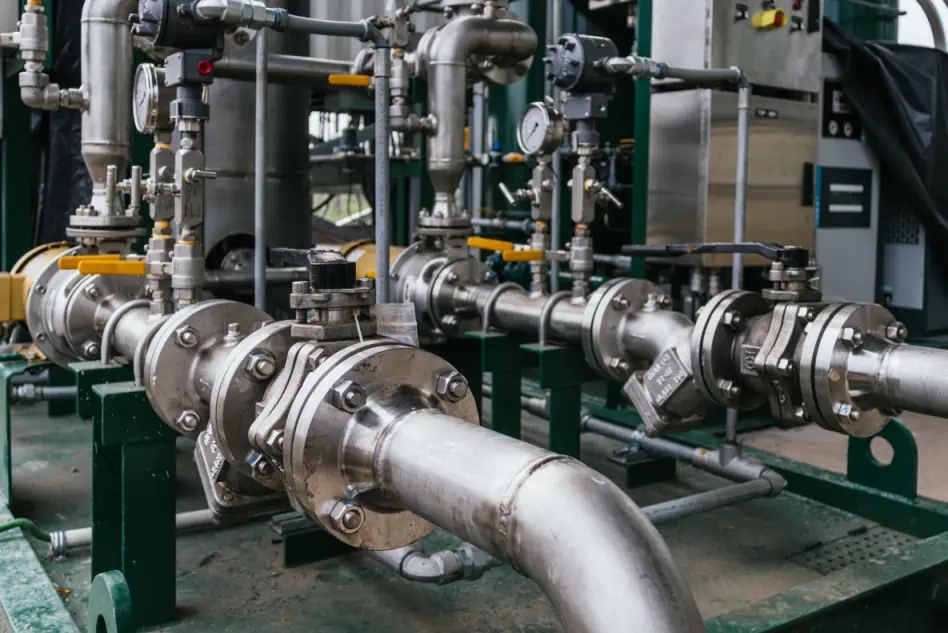Pipe spooling is a technique used in construction projects to create pre-assembled sections of piping systems. These sections, called pipe spools, are fabricated off-site in a controlled environment before being transported and installed on the actual building site.
What are Pipe Spools?
Imagine a complex network of pipes in a power plant or a water treatment facility. Pipe spools are like pre-made building blocks for these networks.
They consist of:
Straight pipe sections of various lengths
Pipe fittings like elbows, tees, flanges, and more
These components are cut, bent, and welded together according to a design plan to create a specific piping configuration. Flanges are typically added at the ends of the spool to allow for easy connection with other spools or equipment on-site using bolts.

The Benefits of Pipe Spooling
There are several advantages to using pipe spools:
Increased Efficiency: Fabrication happens in a controlled workshop with proper tools and jigs, leading to faster and more accurate assembly compared to on-site construction.
Improved Quality: Controlled environments allow for better quality control of welds, cuts, and overall spool assembly.
Reduced Costs: Faster construction translates to lower labor costs. Additionally, less field welding minimizes rework and improves overall project budget.
Enhanced Safety: Less on-site welding reduces worker exposure to fumes and potential hazards from working at heights.
The Pipe Spooling Process
Pipe spooling involves two main phases:
Off-site Fabrication:
Raw pipes are cut to precise lengths based on the design.
Pipes and fittings are tack-welded for temporary assembly.
Welders create permanent welds to join the components.
The spool is inspected and tested for quality and leaks.
Site Installation:
Completed spools are transported to the construction site.
Spools are lifted into position using hoists or cranes.
Flanges on the spools are bolted together to form the complete piping system.
Applications of Pipe Spooling
Pipe spooling is widely used in various industries due to its efficiency and quality benefits. Here are some common applications:
Power plants
Oil refineries
Chemical plants
Water treatment facilities
Shipbuilding
Commercial and industrial buildings
By pre-fabricating spools off-site, construction projects can benefit from faster installation times, improved quality control, and reduced overall costs.
